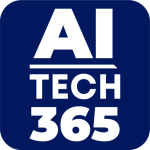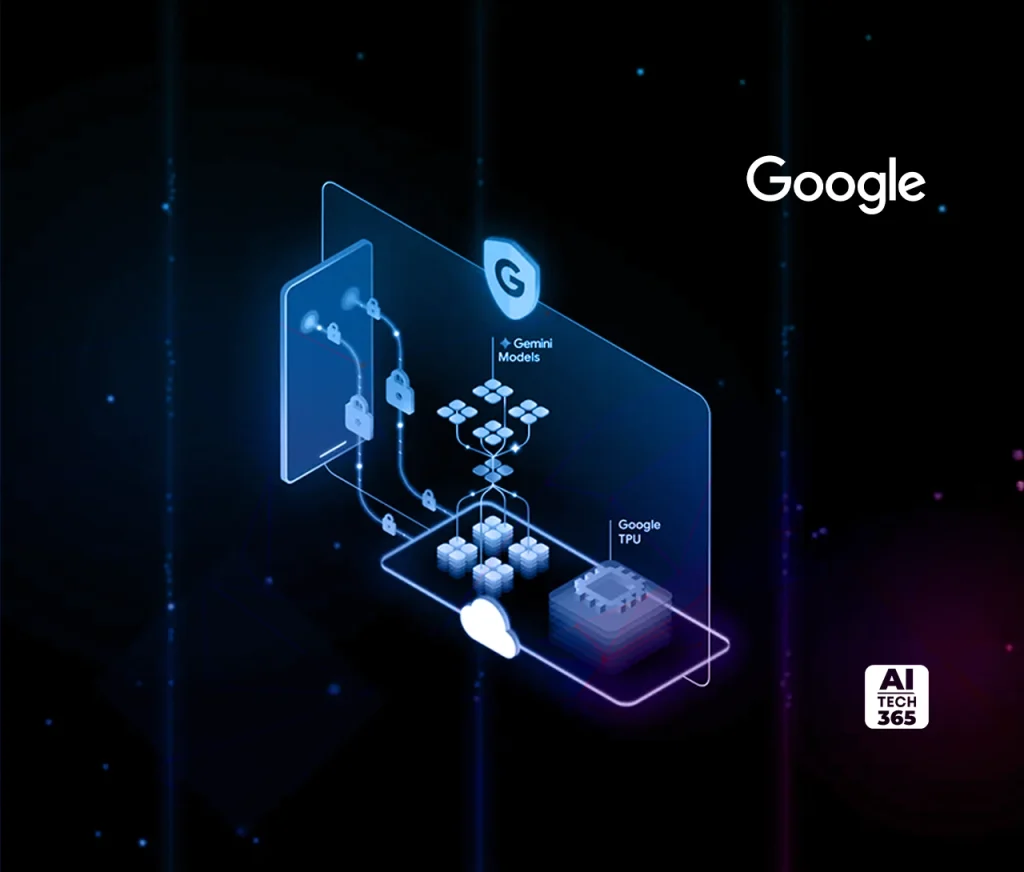Google LLC announced its new offering, Private AI Compute, described as “our next step in building private and helpful AI.” This platform brings the power of Google’s advanced cloud-based Gemini models into a sealed, secure environment that ensures sensitive data remains strictly private even from Google itself.
According to Google’s blog post, Private AI Compute is built on several core tenets:
- It combines the most capable Gemini models in the cloud with on-device‐style privacy protections.
- Data is processed in a “trusted boundary” via Google’s custom TPUs and “Titanium Intelligence Enclaves (TIE)”, with remote attestation and encryption making sure only the user has access not even Google.
- It’s designed to support richer, proactive AI experiences (for example, improved suggestions, summarisation, more capable on-device features) while maintaining heightened privacy and security.
- It aligns with Google’s Secure AI Framework, AI Principles and Privacy Principles, signalling the company’s emphasis on responsible deployment.
In short: Google is promising “cloud-scale AI power” and “on-device-style privacy,” packaged in a way meant to appeal to both consumer-facing product teams and enterprise developers who manage sensitive data or regulatory risk.
Implications for the Private AI Computing Industry
The launch of Private AI Compute is significant not only for Google’s roadmap, but for the broader “private AI” or “secure AI in the cloud” market which is gaining momentum as enterprises push beyond generic large language models (LLMs) into domains that demand data sovereignty, regulatory compliance, confidentiality, and proprietary data usage.
-
Rising bar for privacy-first AI infrastructure
By integrating cloud-scale Gemini models with attested hardware enclaves and encryption, Google is raising expectations around what “private AI computing” can look like. That means competitors and up-and-coming platforms in this space will likely need to match or exceed this level of guarantee if they want to compete on enterprise trust. For example, independent AI infrastructure providers will need to emphasise not just “fine-tuned model on your data” but “sealed compute environment, attested hardware, no vendor access.”
-
Shift from “on-device only” to hybrid cloud-edge trust models
Google mentions that certain on-device tasks (say, on a smartphone) cannot reach the compute demands that cloud models can, hence the rationale for cloud-powered but private execution. The hybrid compute model where sensitive inference happens in a secure cloud enclave and yet feels like an on-device experience opens a new category of “private AI compute services” for devices, enterprises and beyond. For players in this market, it suggests opportunities such as:
- Enclaved compute for regulated industries (finance, healthcare) using LLMs and AI agents on proprietary data.
- Device-OEM partnerships where hardware (mobile, IoT) uses cloud side-compute but ensures end-to-end data privacy.
- Enterprises outsourcing heavy compute while still controlling data access and auditability.
-
Accelerated demand for compliance and hardware security in AI
The announcement underscores that hardware attestation (remote attestation), sealed compute environments (enclaves), encryption, and vendor-internal access restrictions are moving from research lab talk into product-ready reality. For the ecosystem: hardware providers, secure enclave middleware vendors, AI platform builders, and cybersecurity firms all stand to benefit. Vendors who can certify “zero-vendor-access”, strong attestation and isolation will have a competitive edge. This also increases the importance of compliance frameworks (GDPR, HIPAA, etc) tying into AI compute architecture.
-
Business model evolution for AI compute service providers
For companies offering AI compute services whether cloud providers, managed service firms, or niche cloud-AI startups Google’s move signals a premium tier of “trusted AI compute” that commands higher margins and greater enterprise buying interest. Enterprises running sensitive workloads will increasingly look for “private AI compute” offerings rather than generic shared-cloud LLM APIs. Moreover, these services may evolve into subscription-plus-usage models, where the “trusted enclave” is a differentiator. Providers will need to market around data isolation, audit logs, hardware attestation, and minimal vendor trust – not simply model performance.
Also Read: Databricks & Google Cloud Partner to “Unlock Faster, More Efficient” AI/Data Workloads with Axion C4A VMs
Effects on Businesses Operating in This Space
What does this mean for your typical enterprise or vendor operating in the privateAI / secureAI space? Here are the key take-aways and strategic implications:
For Enterprises (Buyers)
- Opportunity to unlock advanced models while mitigating risk: Enterprises that previously shied from using large, cloud-based AI models because of data confidentiality or access fears now have a new option: cloud models with stronger guarantees of data isolation. That could accelerate adoption of AI in regulated markets (finance, healthcare, public sector).
- Checklist today includes compute infrastructure trust not just model accuracy: When procuring private AI compute, businesses must now evaluate: vendor hardware attestation, enclave isolation, vendor/no-vendor access, audit logs, encryption in transit & at rest, as well as model performance.
- Edge device + secure cloud hybrid architectures get legitimised: Businesses embedding AI into devices (mobile, IoT, industrial sensors) can now architect with a secure cloud-compute backbone while still preserving data privacy.
- Vendor lock-in and auditability become central concerns: With sealed compute environments, enterprises should include audit and interoperability clauses, ensure transparency into compute architecture, and preserve ways to migrate or replicate workflows.
For Vendors/Service Providers
- Differentiation by trust and architecture rather than just model size: If you’re a startup offering private AI compute, your value proposition must emphasise trust (hardware/security), not just “we fine-tune GPT for your data”. Google’s move raises the baseline.
- Opportunity for specialised secure compute layers: Vendors can partner or build around enclave technology, remote attestation tools, zero-access compute hosting, and device-cloud integration frameworks.
- Need to partner hardware + software + compliance: The secure private AI compute stack includes hardware (TPUs/GPUs + enclaves), software (models, orchestration, endpoint SDKs) and compliance (audit, data governance, access logs). Vendors who integrate across all three will be better positioned.
- Pricing and go-to-market models: With higher enterprise trust comes higher price points. Vendors need to articulate value both in terms of “what you get” (compute + model + security) and “what you avoid” (data breaches, regulatory fines, vendor lock-in).
In Summary
The launch of Google’s Private AI Compute marks a meaningful advancement in the private AI computing industry. By combining cloud-scale model power with strong privacy, hardware attestation and sealed compute environments, Google is signalling that the era of truly trusted cloud AI is here. For businesses operating in this industry both buyers and providers the implications are clear: trust and architecture matter as much as model capabilities, and hybrid device-cloud architectures with strong security assurances will become the norm.
As you build or refine your AI strategy be it integrating AI into enterprise workflows, investing in private AI compute platforms, or positioning your vendor offering the benchmarks have shifted. The winners will not just deliver “smart models”, but “smart models in a trusted compute environment”.

